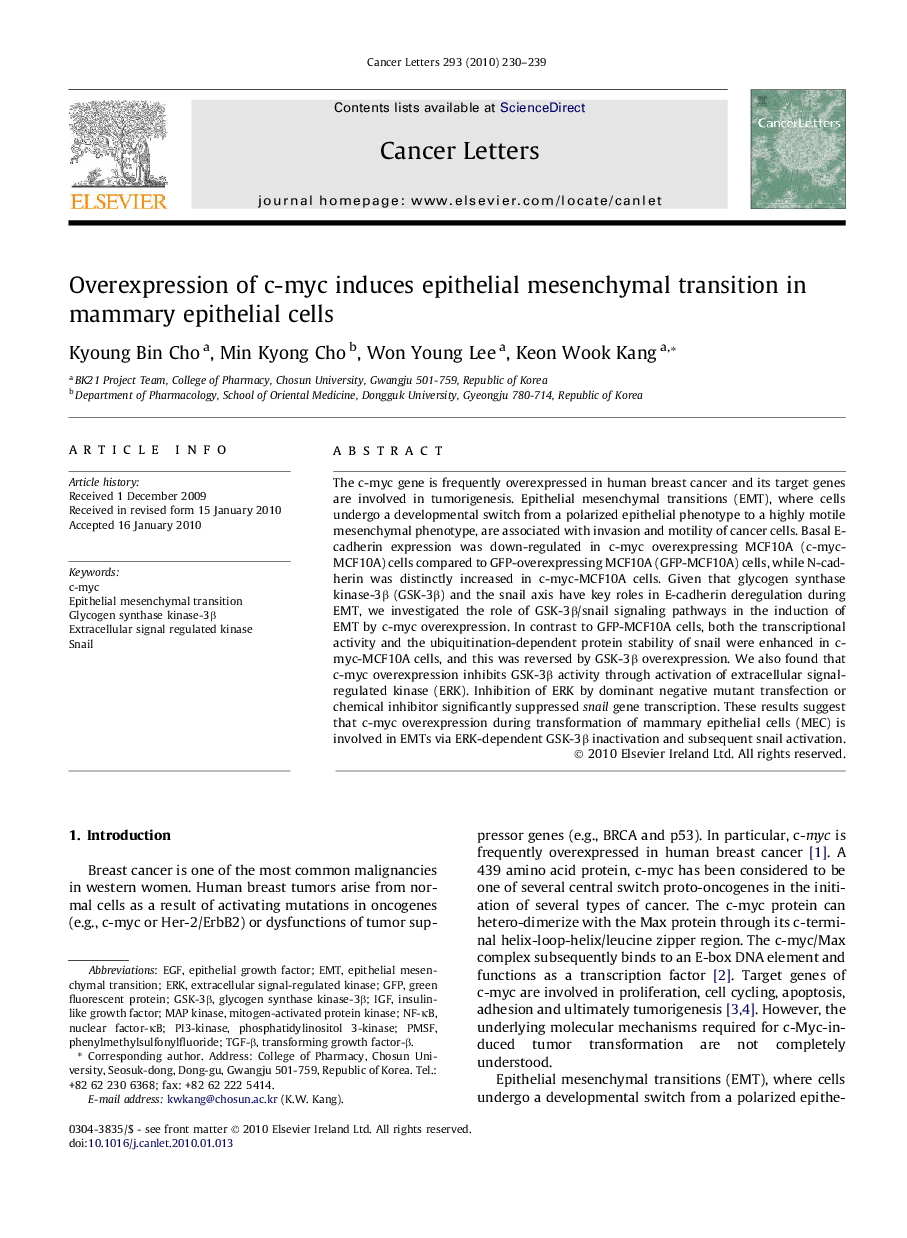| Article ID | Journal | Published Year | Pages | File Type |
|---|---|---|---|---|
| 2114020 | Cancer Letters | 2010 | 10 Pages |
The c-myc gene is frequently overexpressed in human breast cancer and its target genes are involved in tumorigenesis. Epithelial mesenchymal transitions (EMT), where cells undergo a developmental switch from a polarized epithelial phenotype to a highly motile mesenchymal phenotype, are associated with invasion and motility of cancer cells. Basal E-cadherin expression was down-regulated in c-myc overexpressing MCF10A (c-myc-MCF10A) cells compared to GFP-overexpressing MCF10A (GFP-MCF10A) cells, while N-cadherin was distinctly increased in c-myc-MCF10A cells. Given that glycogen synthase kinase-3β (GSK-3β) and the snail axis have key roles in E-cadherin deregulation during EMT, we investigated the role of GSK-3β/snail signaling pathways in the induction of EMT by c-myc overexpression. In contrast to GFP-MCF10A cells, both the transcriptional activity and the ubiquitination-dependent protein stability of snail were enhanced in c-myc-MCF10A cells, and this was reversed by GSK-3β overexpression. We also found that c-myc overexpression inhibits GSK-3β activity through activation of extracellular signal-regulated kinase (ERK). Inhibition of ERK by dominant negative mutant transfection or chemical inhibitor significantly suppressed snail gene transcription. These results suggest that c-myc overexpression during transformation of mammary epithelial cells (MEC) is involved in EMTs via ERK-dependent GSK-3β inactivation and subsequent snail activation.
